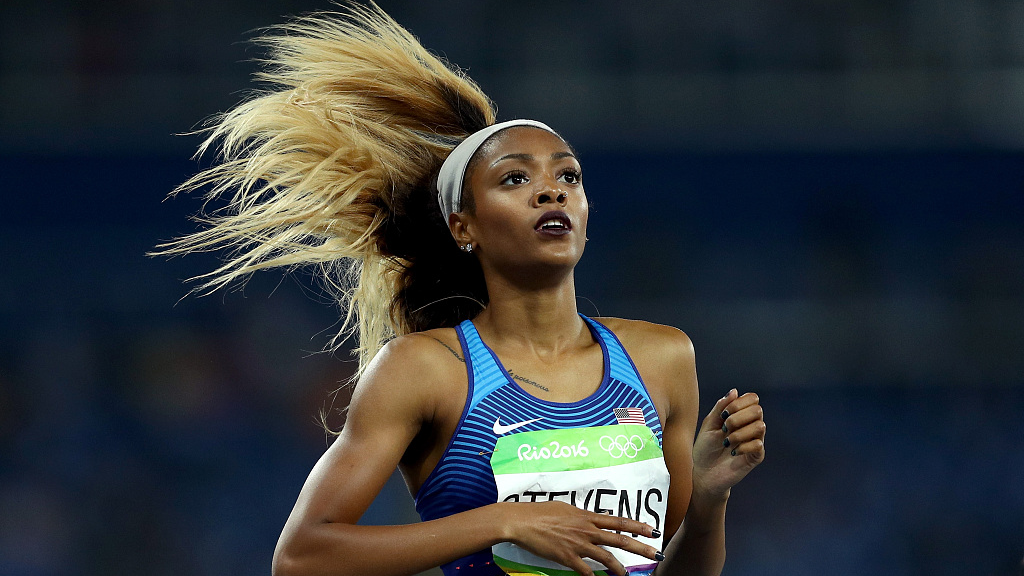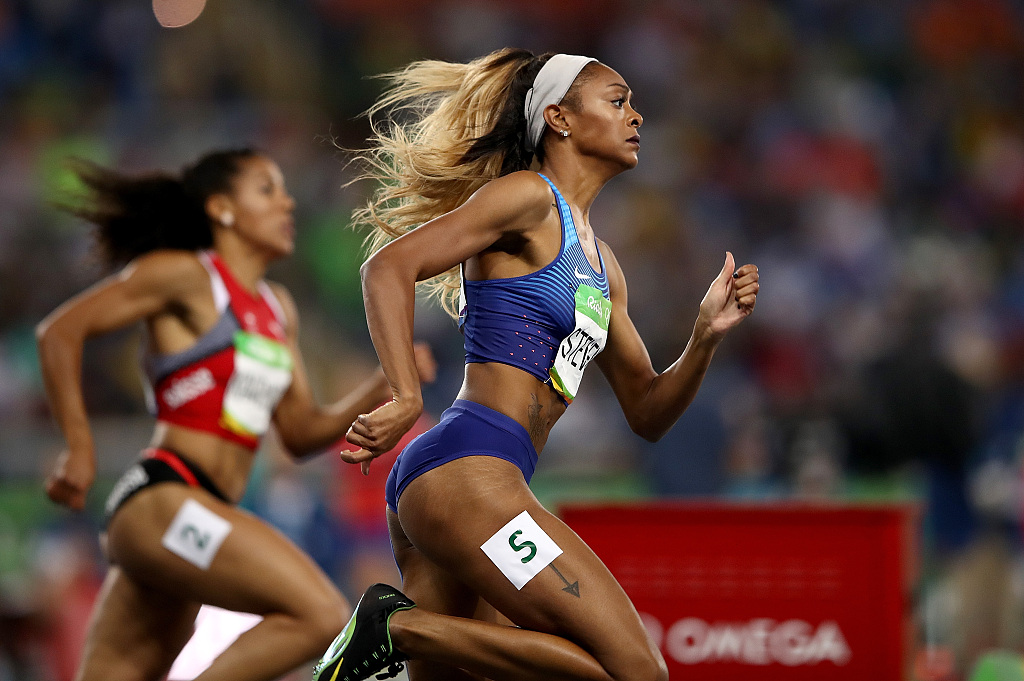
Deajah Stevens of the United States during the Women's 200m Semifinals at the Rio 2016 Olympic Games in Rio de Janeiro, Brazil, August 16, 2016. /VCG
Deajah Stevens of the United States during the Women's 200m Semifinals at the Rio 2016 Olympic Games in Rio de Janeiro, Brazil, August 16, 2016. /VCG
American sprinter Deajah Stevens, who reached the 2016 Rio Olympics 200 metres final, was banned 18 months for missing anti-doping tests and will be ineligible for next year's Tokyo Games, the Athletics Integrity Unit said on Thursday.
The 25-year-old, who finished seventh in the 200m in Rio in 2016 and fifth in the London world championships a year later, was found guilty of not meeting 'whereabouts' criteria.
The AIU, World Athletics' anti-doping arm set up in 2017, said the ban handed down to Stevens had been backdated to begin on February 17, 2020, and will expire at midnight on August 16, 2021, eight days after the Tokyo Olympics conclude.

Deajah Stevens of the United States during the Women's 200m Semifinals at the Rio 2016 Olympic Games in Rio de Janeiro, Brazil, August 16, 2016. /VCG
Deajah Stevens of the United States during the Women's 200m Semifinals at the Rio 2016 Olympic Games in Rio de Janeiro, Brazil, August 16, 2016. /VCG
The three missed tests came in February, August, and November of 2019, according to the ruling from Stevens' disciplinary hearing.
Elite athletes are required to tell the AIU their whereabouts 90 days in advance so they can be subjected to out-of-competition doping tests.
Under World Athletics' rules, any combination of three whereabouts failures (filing failure and/or missed test) within a period of 12 months constitutes an anti-doping rule violation, for which the sanction is two years' ineligibility subject to a reduction to a minimum of one year depending on the athlete's degree of fault.
Stevens has the right to appeal the decision.
(With input from agencies)